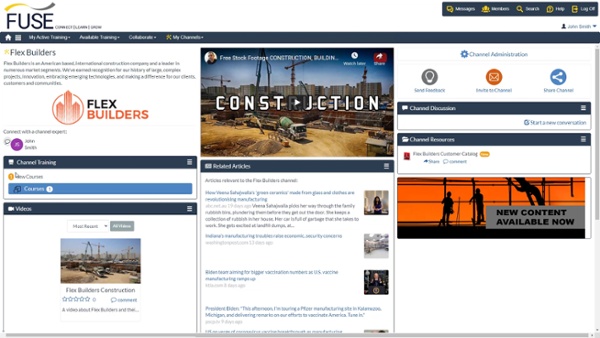As various lockdowns and quarantines continue to disrupt business, and remote work increasingly becoming "the new normal," we see more and more companies turning towards remote training. We're working to support this with our own solutions, but having a strong foundation for remote training is only the start. We've seen numerous remote training initiatives stumble, and that's almost always due to poor planning.
If you want your remote training program to succeed, it should start from a solid plan that attempts to predict and address as many issues as possible. Asking the right questions, and having answers in place before rollout, is key.
Six Questions To Ask While Developing A Remote Training Program
1. Who is this training for?
Always have a specific audience or job role in mind when developing a training program, and use that to guide your curriculum choices. A general-purpose training program will need to spend more time on fundamentals than one aimed specifically at trained engineers, for example. Make sure the material matches the audience.
Also, consider issues such as cultural differences, race, and gender to ensure the training is accessible and relatable to all workers who need to take it.
2. How will success be measured?
Every training program needs methods of tracking and measuring employee outcomes. This might be as simple as an end-of-unit test, or more involved, such as tracking employee performance and utilization for weeks or months after the training. The more mission-critical the training, the more you should focus on showing success.
3. How does the training align with company objectives?
There's frequently some pushback when new training initiatives are proposed, and this will be doubly true of a push towards remote training over in-person seminars. Cover your bases and make sure all your proposals can be concretely aligned to company objectives to reduce the number of obstacles in your path.
4. What tools and techniques will be utilized?
Remote training could be as basic as some text or video, followed by a test. On the other hand, it can also be much more involved, such as utilizing simulations or even Virtual Reality systems to create immersive training scenarios. It generally makes sense to use more complicated (expensive) methods on the most important training, while using more standard methods for typical onboarding or refresher courses.

5. How will the content engage the audience?
Engagement is critical in any type of education, but it's particularly important for remote training where workers may have numerous potential distractions around them. Training content needs to be engaging on an intellectual level, but also - ideally - on an emotional level as well. Adding humor often helps. Avoid overly-long modules or lessons. Anything longer than half an hour is likely to start boring the audience, and causing their attention to slip. Breaking up long lessons into multiple multi-media modules can overcome this problem.
6. Will there be any interaction between students?
Group learning is generally more effective than solo learning, and in a collaborative environment, it makes sense to have training which is also collaborative. Look for ways to connect learners, such as utilizing platforms that incorporate chat, voice, or video-conferencing capabilities.
Streamline Education and Training Through LogicBay's Technology Solutions
FUSE is a one-of-a-kind platform developed specifically for businesses which need better ways to connect their workforce, improve training initiatives, and inspire collaboration. FUSE is scalable and can meet the needs of operations of any size, from startups to multinationals. The ecosystem will help you:
- Sell courses to new audiences and increase revenue
- Acquire course material and certifications from multiple brands and industry experts through one platform
- Track learning plans and course completion via sophisticated learning management tools
- Help students create portable transcripts as they begin their career development
Click here to claim your free account, and see for yourself.

Image credit: https://www.qualitymag.com/
